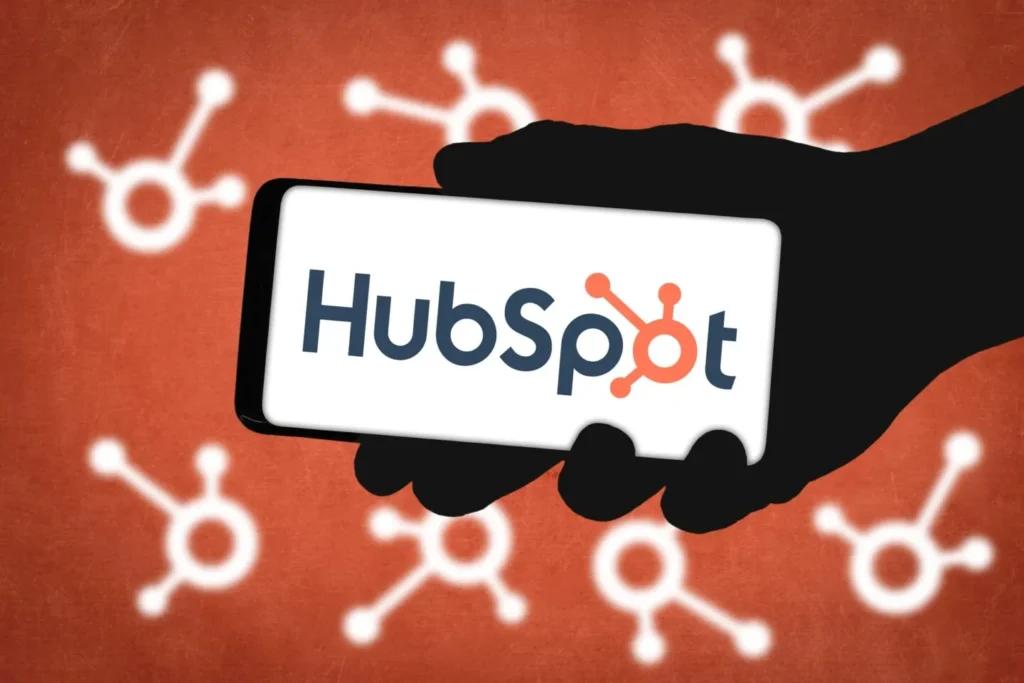best ai tools for business
Artificial Intelligence (AI) is revolutionizing the way businesses operate by automating tasks, improving decision-making, and enhancing customer experience. Whether you run a small startup or a large enterprise, integrating AI tools can optimize your processes and give you a competitive edge. Here’s a look at the best AI tools for businesses
1: ChatGPT by OpenAI

Use Case: Customer service, content creation, brainstorming
Why It’s Great:
ChatGPT excels in generating human-like text, making it perfect for automating customer service responses, drafting emails, or creating blog content. Its versatility makes it a valuable tool for businesses of any size.
Key Features of ChatGPT
Versatile Communication:
ChatGPT can simulate human-like conversations, making it ideal for customer service, brainstorming, or casual chats.Content Creation:
It can draft blog posts, social media content, professional emails, and more, saving time and effort for businesses.Code Assistance:
Developers can use ChatGPT to debug code, generate snippets, or learn new programming concepts efficiently.Multilingual Support:
ChatGPT supports multiple languages, breaking language barriers and enabling global communication.Customization:
Businesses can fine-tune ChatGPT’s responses to suit specific use cases or branding.
Use Cases for Businesses
Customer Support:
Automate customer interactions through chatbots powered by ChatGPT, providing 24/7 support with quick and accurate responses.Marketing and SEO:
Generate compelling marketing content, optimize SEO strategies, and brainstorm ideas for campaigns.Education and Training:
Use ChatGPT for creating tutorials, answering queries, and designing learning modules.Data Analysis:
Summarize large datasets or reports, making it easier for teams to extract actionable insights.Administrative Assistance:
Automate routine tasks like scheduling, drafting emails, and preparing meeting agendas.
Advantages of ChatGPT
- Time-Saving: Automates repetitive tasks, allowing teams to focus on higher-value activities.
- Cost-Effective: Reduces reliance on extensive human resources for customer service or content creation.
- Scalable: Easily adaptable to businesses of all sizes, from startups to large enterprises.
- Continuous Learning: Regular updates from OpenAI ensure improved performance over time.
2: Jasper AI

Use Case: Marketing and copywriting
Why It’s Great:
Jasper AI specializes in generating high-quality marketing copy for social media, email campaigns, and websites. It’s designed for marketers who need creative content quickly.
Key Features of Jasper AI
Wide Range of Templates:
Jasper offers over 50+ pre-designed templates tailored for various content needs, such as:- Blog posts
- Ad copy
- Email marketing
- Video scripts
SEO Optimization:
Jasper integrates with tools like Surfer SEO, allowing users to create content optimized for search engines directly within the platform.Multilingual Writing:
Jasper supports over 25 languages, making it a go-to tool for businesses targeting global audiences.Plagiarism Checker:
Integrated plagiarism detection ensures that the content generated is original and publication-ready.Customizable Tones and Styles:
Users can instruct Jasper to write in specific tones—formal, casual, humorous, or professional—suiting various brand voices.Collaboration Tools:
Jasper allows team collaboration for projects, enabling seamless content creation workflows.
Use Cases for Jasper AI
Blogging:
Generate detailed blog outlines or complete articles on any topic, saving hours of writing time.Social Media Marketing:
Create engaging captions, posts, and stories tailored to specific platforms like Instagram, Twitter, or LinkedIn.E-commerce:
Jasper is perfect for generating product descriptions, customer reviews, and promotional email content.Ad Campaigns:
Craft high-converting ad copy for Google Ads, Facebook Ads, and more.Creative Writing:
Jasper can assist with storytelling, poetry, or even brainstorming ideas for books and scripts.
Advantages of Jasper AI
- Speed: Jasper can produce thousands of words in minutes, saving significant time.
- Consistency: Ensures uniformity in tone and style across different content pieces.
- Scalability: Ideal for businesses looking to produce content at scale without compromising quality.
- Ease of Use: The intuitive interface ensures even non-writers can navigate and create content effortlessly.
3: HubSpot’s AI Tools

Use Case: Customer Relationship Management (CRM) and marketing
Why It’s Great:
HubSpot integrates AI to enhance email marketing, lead generation, and CRM automation. It helps businesses streamline workflows and personalize customer interactions.
Key Features of HubSpot’s AI Tools
Predictive Lead Scoring:
AI analyzes customer data to rank leads based on their likelihood to convert, helping sales teams prioritize efforts effectively.Content Optimization:
HubSpot’s AI-driven suggestions help marketers create SEO-optimized blog posts, email content, and landing pages, ensuring better engagement and search engine visibility.Conversational AI Chatbots:
AI-powered chatbots provide 24/7 customer support, answering queries, collecting information, and routing complex issues to human agents seamlessly.Email Personalization:
AI automates email segmentation and personalization, ensuring targeted communication that resonates with individual customers.Forecasting and Insights:
HubSpot’s AI tools generate sales forecasts and actionable insights based on historical data, empowering teams to make informed decisions.Smart Workflows:
AI automates repetitive tasks like follow-up emails, meeting scheduling, and data entry, boosting productivity across departments.
Use Cases for HubSpot’s AI Tools
Marketing Automation:
Automate email campaigns, optimize content for SEO, and track performance with AI-powered analytics.Customer Support:
Implement chatbots to handle FAQs, reduce response times, and enhance customer satisfaction.Sales Enablement:
Use predictive scoring and sales forecasting to prioritize leads and close deals faster.Data Management:
Ensure clean and updated customer databases with automated data deduplication and enrichment.
Advantages of HubSpot’s AI Tools
- All-in-One Platform: HubSpot integrates marketing, sales, and CRM tools, offering a seamless user experience.
- Scalable for Businesses: Whether you’re a startup or an enterprise, HubSpot’s tools adapt to your needs.
- Ease of Use: The intuitive interface and comprehensive support make it accessible for teams without technical expertise.
- Improved Efficiency: Automates routine tasks, freeing up time for strategic initiatives.
4. Zoho Analytics

Use Case: Data analysis and reporting
Why It’s Great:
Zoho Analytics uses AI to process large amounts of data and provide actionable insights. Businesses can track performance metrics and make data-driven decisions effortlessly.
Key Features of Zoho Analytics
AI-Powered Insights:
- Zoho’s Zia AI assistant generates automated insights, trend forecasts, and anomaly detection in data.
- Zia provides natural language querying, allowing users to ask questions about their data in plain language.
Data Integration:
- Connects with 500+ business apps like Salesforce, HubSpot, Google Analytics, and more.
- Allows seamless data import from spreadsheets, databases, and cloud storage services.
Advanced Visualization:
- Offers interactive dashboards, heat maps, and charts to help visualize data clearly.
- Customizable dashboards for a tailored view of KPIs and metrics.
Collaboration Tools:
- Team sharing and collaboration on reports and dashboards.
- User access control to ensure data security and integrity.
Automated Reporting:
- Scheduled email reports and alerts for updated insights.
- AI-generated narratives to summarize reports.
Use Cases for Zoho Analytics
Sales Performance Tracking:
Generate sales reports, monitor revenue trends, and forecast sales based on historical data.Marketing Analytics:
Measure campaign effectiveness, track website performance, and calculate ROI for marketing efforts.Financial Analysis:
Automate expense tracking, budget planning, and profitability analysis with detailed financial dashboards.Customer Insights:
Analyze customer behavior, segment data, and identify opportunities to enhance satisfaction and retention.Operational Efficiency:
Monitor supply chain performance, inventory levels, and resource utilization for smoother operations.
Advantages of Zoho Analytics
- Ease of Use: Intuitive drag-and-drop interface suitable for non-technical users.
- Cost-Effective: Affordable pricing plans, making advanced analytics accessible to small businesses.
- Enhanced Decision-Making: AI-driven insights provide a competitive edge.
- Secure and Reliable: Strong encryption and role-based access ensure data privacy.
5. Grammarly Business

Use Case: Proofreading and team communication
Why It’s Great:Grammarly’s AI enhances written communication by correcting grammar, tone, and style. It’s an essential tool for maintaining professionalism in emails, reports, and proposals.
Key Features of Grammarly Business
Advanced Grammar and Spell Check:
Grammarly automatically detects and corrects grammatical errors, misspellings, and punctuation issues, ensuring your content is polished and professional.Tone Detection:
This feature analyzes the tone of your writing, helping you communicate more effectively with colleagues, clients, or customers. Whether you want to appear formal, friendly, or confident, Grammarly suggests edits to align your tone with your intent.Writing Style and Clarity Enhancements:
Grammarly suggests improvements in sentence structure, word choice, and readability. It helps users avoid wordy or ambiguous sentences and improves the overall flow of text.Team Collaboration:
Grammarly Business allows teams to set up a centralized workspace, where documents and writing style guides can be shared. It ensures that everyone on the team maintains consistency in writing, which is crucial for branding.Customizable Style Guides:
Customize the writing style rules specific to your business or industry, ensuring all communications follow a consistent voice and tone.Plagiarism Checker:
The plagiarism checker scans documents to ensure content is original, helping businesses avoid unintentional copyright violations.Integration with Popular Tools:
Grammarly Business integrates seamlessly with tools like Google Docs, Microsoft Office, and Slack, enabling teams to write confidently within their existing workflow.
Why Grammarly Business is Great for Companies
Improved Communication: Clear, concise, and error-free communication is essential for business success. Grammarly helps eliminate mistakes that could impact the professionalism of internal and external communications.
Consistency Across Teams: With customizable style guides, Grammarly ensures that all team members are on the same page, producing consistent messaging across documents, emails, and reports.
Enhanced Productivity: Grammarly saves time by reducing the need for manual proofreading, enabling employees to focus on higher-priority tasks.
Real-time Suggestions: Grammarly provides immediate feedback as you type, offering suggestions for improvements without disrupting your workflow.
Use Cases for Grammarly Business
Team Collaboration:
Teams can collaborate on documents without worrying about grammar errors or inconsistent tone. Grammarly Business helps streamline the process by ensuring a unified approach to communication.Customer Communication:
Whether drafting emails or customer proposals, Grammarly ensures that all communications with clients are professional, clear, and on-brand.Internal Documents:
Ensure internal documents, reports, or presentations are error-free, well-structured, and easy to understand, making them more effective for decision-making and knowledge sharing.Marketing and Content Creation:
Marketing teams can use Grammarly to produce compelling, high-quality content for websites, blogs, or social media, ensuring that all content aligns with the brand’s voice.

